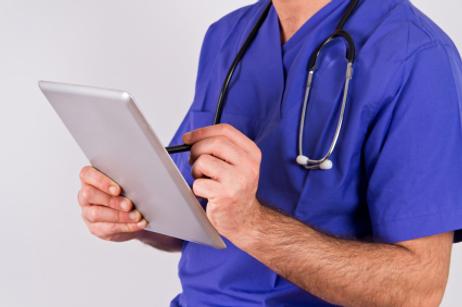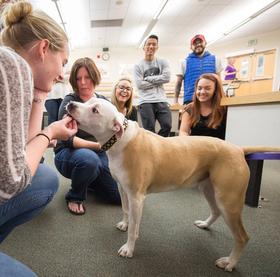Careers
With the convenience and efficiency of EHRs, patient information can be recorded and sent to approved medical providers and treatment centers with less hassle for both patients and medical providers. EHRs typically include information such as, “Patient demographics, progress notes, problems, medications, vital signs, past medical history, immunizations, laboratory data, and radiology reports.”
EHRs are gaining steam in medicine and healthcare, and subsequently, students can take advantage of a growing and lucrative healthcare career in EHRs starting at their local community colleges.
This video explains what an EHR or Electronic Health Record is.
The Rising Demand for EHRs
EHRs essentially serve to streamline communication and informational systems among clinicians. By generating complete records of a patient’s medical and treatment history, an EHR offers an array of benefits, including reducing a clinician’s workflow, as well as providing patients with improved healthcare services. Elaborating on this, as the Health Information Management Systems Society explains, EHRs offer direct or indirect interface features, providing health care workers with details “Including evidence-based decision support, quality management, and outcomes reporting.”
Investigating EHRs’ applications in the professional setting, studies prove that EHRs are significantly boosting patient health and recovery. As PR News Wire reveals, a randomized study of EHRs conducted by Kaiser Permanente found that the use of EHRs helped to reduce the risk of cardiac-related deaths by 73 percent! Specifically, by using EHRs to streamline communication, “Patients and teams of pharmacists, nurses, primary care doctors, and cardiologists with an electronic health record also kept the patients healthy two years after they left the program by keeping them in touch with their caregivers electronically.”
Furthermore, over the span of two years, 421 of the evaluated patients were reportedly able to control their lipid and blood pressure levels with the assistance of electronic reminder letters (made possible with the tools of the patient’s EHR).
In this video, AthenaHealth CEO Jonathan Bush talks about electronic health records.
Community College EHR Programs
As the use of EHRs continues to grow in popularity, a rising number of community colleges are incorporating EHR programs into their course offerings. Among the many schools across the nation, the Borough of Manhattan Community College (BMCC), located in New York, has gained notable attention for offering innovative classes and training venues for students interested in working in the EHR field.
BMCC's EHR classes have been designed with the collaboration of Network Infrastructure Technologies and the Manhattan Education Opportunity Center. Through the combined efforts of these two major forces, the EHR program was launched for the 2009 – 2010 school year, which is very timely considering that many hospitals and healthcare facilities are being pressured to quickly adopt EHR technologies.
By requiring students to complete 20 specific sessions, each lasting three hours, the EHR courses at BMCC allow students to access a lab with implementations of EHR software. In addition, students gain hands-on experiences while working with the equipment and data to make optimal patient-care decisions. According to additional reports, a rising number of colleges, specifically in the New York area, are hoping to offer similar EHR opportunities in the near future.
This video describes EHR 101 Training for staff, providers, and interns.
With the proposed healthcare reforms currently circulating in Washington DC, changes are certainly on the horizon for healthcare facilities and hospitals. Individuals looking for a rewarding, in-demand career can now begin considering EHR programs soon to be launched at community colleges across the nation. These programs will give students a competitive edge and a head start in entering into a soon-to-be highly demanded career.
Questions? Contact us on Facebook @communitycollegereview.















